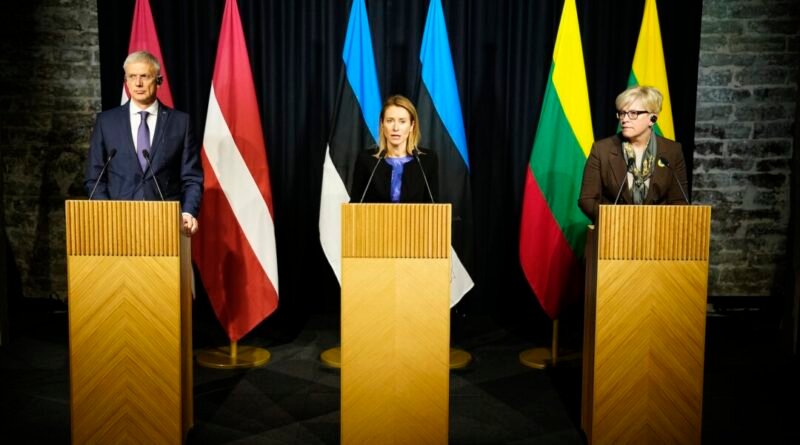Baltic States to Separate from Russia-Linked Power Grid
In February 2025, Estonia, Latvia, and Lithuania will connect to the main continental European energy network instead.
The transmission system operators (TSOs) of Estonia, Latvia, and Lithuania have officially informed Russia and Belarus about their decision to separate from a Moscow-controlled electricity system. They cited the anticipated benefits of increased reliability and energy security as reasons for the move.
Following Russia’s invasion of Ukraine, the Baltic countries ceased purchasing electricity from Russia. By decoupling from the Russian grid and linking up with the main continental European energy network, they are taking a more definitive step in severing ties.
The three TSOs—Elering (Estonia), AST (Latvia), and Litgrid (Lithuania)—stated that the BRELL agreement would not be renewed after it expires on Feb. 7, 2025. Subsequently, the Baltic states will connect to the Continental Europe Synchronous Area, which serves over 400 million customers in 24 countries and is the largest synchronous electrical grid in the world.
The Baltic electricity systems believe that adhering to common European rules will bring a range of benefits, including operational transparency and the flexibility to integrate renewable energy sources into overall electricity generation.
“Synchronization with the Continental Europe Synchronous Area will enable independent, stable, and reliable frequency control of the Baltic states’ electricity grids and enhance energy security in the region,” the three TSOs stated.
In 2019, Estonia, Latvia, Lithuania, and Poland agreed with the European Union (EU) authorities to work together to connect the three Baltic nations to the European grid by the end of 2025. However, the conflict in Ukraine hastened this process.
Lithuania advocated for an earlier departure from the energy partnership with Russia due to Moscow’s unpredictability and aggressive actions in Ukraine. Conversely, Estonia opposed a rapid disconnection to prevent potential blackouts from an abrupt transition.
Although the transition is scheduled for February 2025, the electrical systems of the Baltic states are already equipped for immediate emergency synchronization with the European grid if necessary, according to Kalle Kilk, chairman of the board of Elering in Estonia.
“Over the past five years in Estonia, most of the infrastructure ensuring the stability and reliability of the electricity system has been completed, including three synchronous condensers,” Kilk said in a statement. He added, “The final major construction project, the reconstruction of the Viru-Tsirguliina high-voltage power line, is 90% completed and will be fully operational by winter.”
The Epoch Times has reached out to Russia’s Ministry of Energy for comments on this development.





